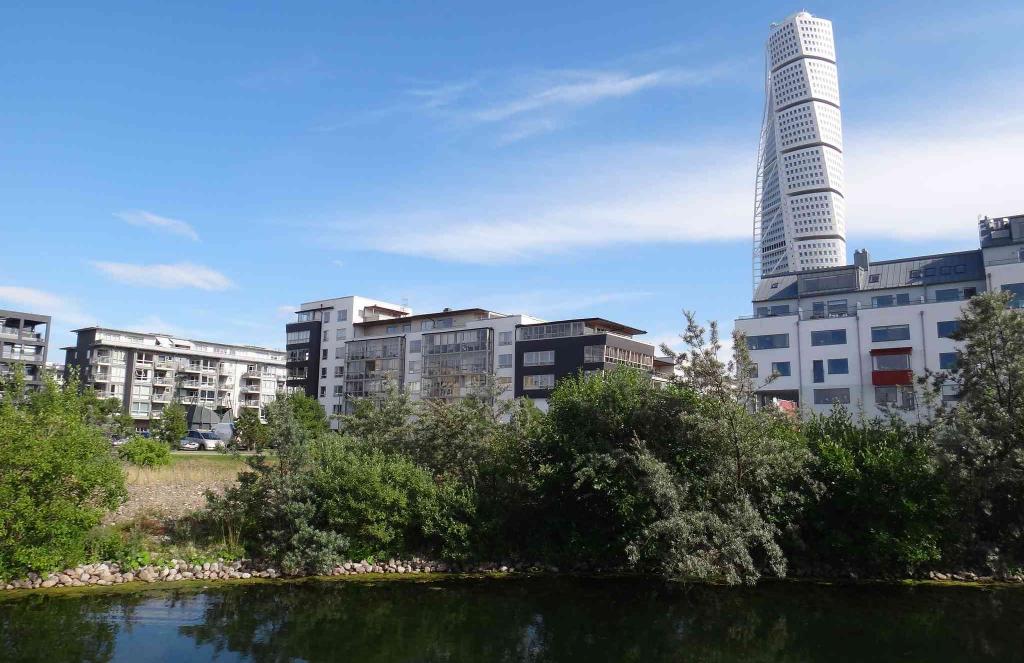Thessaloniki gets ready for its metro launch in November
The underground rapid transit lines have been under construction for almost two decades due to various project delays
 TheMayor.EU logo
TheMayor.EU logo 
A residential neighbourhood in Malmö, Source: Josefine Granding Larsson, on Flickr (CC BY-NC-ND 2.0)
It took a concerted effort from the main stakeholders in the industry for this to happen
Malmö is currently hosting the ICLEI World Congress Summit: 2021-22, however more than a meeting venue, the Swedish city is a pioneer of its own in the field of sustainability. One of its praiseworthy initiatives was the creation of the LFM30 roadmap to climate-neutral construction. In essence, this is a large-scale collaborative platform among all the main local stakeholders involved in the construction industry, working in accord with the public administration to achieve a climate-neutral status for their city.
The construction industry is actually one of the biggest greenhouse gas emitters. For a city like Malmö, it accounts for 20% of its overall carbon footprint. At the same time, over the next 10–15 years, the city plans to build approximately 28,500 new homes, extend municipal services and expand infrastructure. In addition to this, the city’s existing buildings will require routine maintenance and renovation.
As a response to that pressing issue and to find a meaningful solution that works, the local government signed up for the national Fossil Free Sweden roadmap but also decided to develop its own roadmap. As a result, the LFM30 was created to provide a vision and a set of guiding standards for the construction industry.
The roadmap contains six overarching, indivisible and strategic focus areas:
Renewable and circular building materials are prioritized in all construction work and actors increase their collective demand for reused, recycled, renewable, resource-efficient, and climate-neutral materials.
Waste reduction is key in the LFM30 roadmap. Actors strive to minimize construction waste by recycling materials to get full circularity. In addition to this, by calculating estimates of a building’s climate impact in the design phase, actors can take construction decisions that also prevent the production of waste.
These are the principles that actors sign up and commit to following in order to make their industry climate-neutral by 2030. What’s more, the roadmap looks beyond that deadline to integrate climate-positivity after that, meaning that the industry will recycle and repurpose more than it will emit.

The underground rapid transit lines have been under construction for almost two decades due to various project delays

Now you can get your wine in Talence by paying directly in Bitcoin

That’s because the state has to spend money on updating the railway infrastructure rather than subsidizing the cost of the popular pass

Rethinking renewable energy sources for the urban landscape

The examples, compiled by Beyond Fossil Fuels, can inform and inspire communities and entrepreneurs that still feel trepidation at the prospect of energy transition

Now you can get your wine in Talence by paying directly in Bitcoin

The 10th European Conference on Sustainable Cities and Towns (ESCT) sets the stage for stronger cooperation between the EU, national and local level to fast track Europe's transition to climate neutrality.

At least, that’s the promise made by the mayor of Paris, Anne Hidalgo

The underground rapid transit lines have been under construction for almost two decades due to various project delays

At least, that’s the promise made by the mayor of Paris, Anne Hidalgo

Hostal de Pinós is located in the geographical centre of the autonomous region

Despite its church-y name, the district has long been known as the hangout spot for the artsy crowds

Urban dwellers across the EU are having a say in making their surroundings friendlier to people and the environment.

Forests in the EU can help green the European construction industry and bolster a continent-wide push for architectural improvements.

Apply by 10 November and do your part for the transformation of European public spaces

An interview with the Mayor of a Polish city that seeks to reinvent itself

An interview with the newly elected ICLEI President and Mayor of Malmö

A conversation with the Mayor of Lisbon about the spirit and dimensions of innovation present in the Portuguese capital














